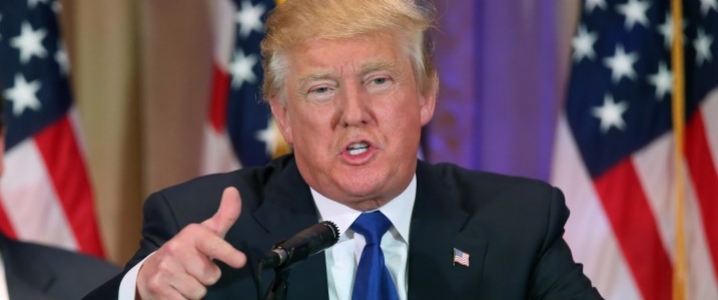The Trump administration is set to roll out a historic weakening of fuel economy standards for the nation’s auto fleet, and, crucially, the government will seek to revoke the unique authority that California has to set its own standards, potentially leading to a nasty and protracted legal fight.
The proposal was supposed to be rolled out last week but was delayed because the EPA wanted to tighten the language in order to head off expected legal challenges. However, reports suggest the proposal could be released any day.
Under the Obama administration, federal rules required a ratcheting up of fuel economy standards for cars and light trucks, requiring automakers to have a fleet average of over 50 miles per gallon by 2025. It is important to note that the auto industry supported these rules when they were implemented years ago, and in fact, they were formed in consultation with the auto industry.
However, under the Trump administration, automakers sensed an opportunity, lobbying to roll back the fuel efficiency requirements. But they got a lot more than they bargained for. The Trump administration sought to gut the standards, which sets up a predicament that the auto industry wanted to avoid: A patchwork of regulations across various states.
The problem is that California has its own authority to set fuel efficiency standards for cars and light trucks, a unique authority that dates back decades because parts of the state used to suffer from horrific smog. When California adopts tighter fuel economy standards, other states can follow suit.
Under the Obama administration, the industry and the federal government agreed on yearly increases in fuel economy standards, and California signed on, harmonizing its rules with those of the federal government. The agreement provided clarity on fuel standards through the middle of the 2020s. Related: An Unexpected Windfall For U.S. Solar
Now, everything is up in the air. The Trump administration is set to propose a freeze on the standards after 2020, keeping the fleet-wide standard at about 37 miles per gallon rather than allowing it to tighten to over 50 mpg through 2025.
But the fear for the industry is that California will resist the watering down of the fuel economy standards, and continue to tighten requirements at the state level. That is big problem for a company like GM or Ford who would still have to comply with California’s standards if it wanted to sell cars there. It isn’t feasible to setup different production lines, rolling out models that have different fuel economies in order to sell in different states.
It’s unclear why automakers didn’t see this legal mess coming when they pressed for deregulation. But here we are. Seeing the trouble ahead, automakers have asked the government to come to some sort of agreement with California regulators. Instead, the Trump administration is essentially declaring war.
The soon-to-be-released proposal reportedly calls for revoking California’s authority to set its own standards. It is not clear how this will shake out, although the one certainty is that it will open up a major legal battle. “The law is very clear about California’s authority to set these standards, and for the EPA to try to narrow it now means they have an uphill battle,” Paul Cort, an attorney with environmental group Earthjustice, told Bloomberg.
“This is a huge shift in regulatory oversight, and while it initially looks like a benefit for automakers it adds a level of uncertainty none of them want,” Karl Brauer, executive publisher Kelley Blue Book, told Bloomberg.
The Trump administration says the watered-down rules will save consumers half a trillion dollars. But there is a long history of automakers decrying fuel regulations as a mortal threat, only to comply with them once they go into effect without too much trouble. In fact, fuel economy standards end up saving motorists money, as drivers burn a lot less fuel than they otherwise would. Related: Coke, Meth And Booze: The Flip Side Of The Permian Oil Boom
A recent study from Energy Innovation found that the freezing of fuel economy standards would cost the U.S. economy $274 billion through 2050. If the standards are frozen and the Trump administration succeeds in taking away California’s authority to set its own standards, it would cost the U.S. $450 billion through 2050. Energy Innovation says rolling back the current standards would essentially be the equivalent of a 57-cent per-gallon tax on gasoline in 2040.
That’s because drivers would have to buy and consume a lot more gasoline. Energy Innovation says that in 2035, with the standards frozen, U.S. gasoline consumption would increase from 1,837 to 2,200 million barrels per year, a 20 percent increase. And cumulatively, freezing the standards would result in the U.S. consuming an additional 6.9 billion barrels between 2021 and 2050. Higher U.S. demand would also tighten the oil market, so global crude oil prices will be higher than they otherwise would be.
It is unlikely that this will be resolved anytime soon. California is likely to sue, and the legal fight could stretch on for years.
By Nick Cunningham of Oilprice.com
More Top Reads From Oilprice.com:
- The Oil And Gas Boom Sends U.S. GDP Soaring
- A Trade Too Good To Ignore
- $40 Billion LNG Project Finally Starts Up


















Thank you Mr. President
Their States can produce and sell more oil. National Security? Consumers? Air Pollution?
Who Cares! (As long as Big Oil Is Alive and Well!)
This is why it's Vital for Tesla and the Bio-fuel Industry to succeed. They are our best hope for diversified fuel security, lower prices at the pump and cleaner air.
Not Frozen Vehicle Efficiency Standards.
(Environmental Protection Agency?) What is that?